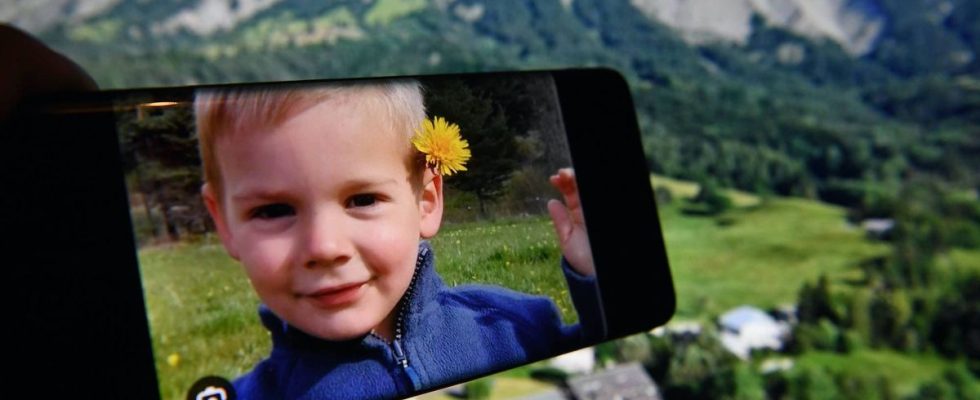Published on
Updated
Reading 2 min.
in collaboration with
Amélie Boukhobza (Clinical psychologist)
Last Saturday, bones of young Emile were discovered by a hiker. If many questions still arise about the conditions of his death, the discovery puts an end to a terrible wait for the family. How can this stage affect mourning? We asked Amélie Boukhobza, clinical psychologist, the question.
Will we one day know what happened to young Emile on July 8, 2023? That day, the 2-year-old boy vanished into thin air in the hamlet of Haut-Vernet in the Alpes de Haute-Provence, plunging the region and all of France into turmoil. But after long research and multiple hypotheses (kidnapping, accident, homicide, etc.), the quest reached a definitive turn on Saturday March 30, when a hiker found what was confirmed to be the child’s skull. If there are still many puzzles to solve, the family’s hope is no longer allowed. A painful announcement which can nevertheless allow us to move forward.
Without the notion of “loss”, no mourning is possible
Thus, as painful as the epilogue and the announcement made to the parents are (the discovery of the child’s skull), this progress necessarily has a significant impact on the parents’ grieving process, as explained by Amélie Boukhobza, clinical psychologist. and member of our expert committee.
“It seems obvious but finding the body of the child (of Emile, or any other missing child), is indeed the sign that he is dead. It is the concrete confirmation of the loss, essential to begin the work of mourning. Without loss, no mourning is possible. The parents have lost a child. But with the confirmation of his death, they no longer wait for his possible return, nor for news about him. They do not just wait any longer.”
This does not necessarily mean that the grieving process will happen quickly and simply (it can involve several phases, ranging from denial to acceptance), but that it is now possible:
“It is obvious that the disappearance without trace of a loved one (and even more so of one’s child) can leave parents in a state of prolonged suspension, oscillating between hope and despair, making it difficult or even impossible to progress towards acceptance of loss. The discovery of the body marks the end of uncertainty and allows an anchoring in reality, however painful it may be.”
A reality which will gradually also allow mourning rituals such as funerals to take place.
But a response that is still too partial in the case of Emile
Emile therefore died, probably several months ago, perhaps on the first day of his disappearance. But many questions remain unanswered, about the very location of his discovery, the time frame, the cause or even what happened to the rest of his body. Questions which can, in this specific case, undermine the grieving process underway.
“This step, confirmation of the child’s death, is not a guarantee of immediate well-being, however, reveals our expert. Parents also need to understand what happened, who is responsible? Accident ? Homicide? All of these elements are obviously equally essential to the unfolding of the grieving process.”
As for the “partial” discovery of the body, it adds a complex element to the parents’ acceptance. “The boy did not survive. No more doubts about this. However, the itraumatic impact is even heavier! They will obviously want to find the rest, so as to restore “physical integrity” to the body if I may say so, but above all dignity and humanity!”
Answers which, alone, can give meaning to the situation and perhaps help overcome this mourning. “It is essential to reconstruct the narrative of the story, otherwise it will remain for parents as an unsurpassable “hole”.
